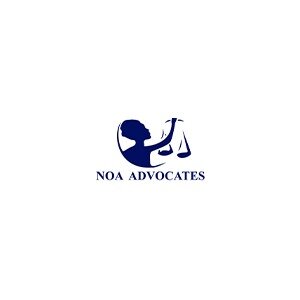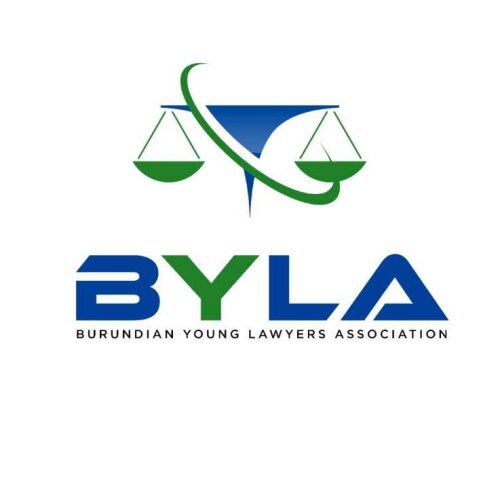Best Nonprofit & Charitable Organizations Lawyers in Burundi
Share your needs with us, get contacted by law firms.
Free. Takes 2 min.
Or refine your search by selecting a city:
List of the best lawyers in Burundi
About Nonprofit & Charitable Organizations Law in Burundi
Nonprofit and charitable organizations play a crucial role in Burundi's social and economic development, operating within a framework that supports social welfare, education, health, and community development. These organizations must navigate a legal landscape that dictates how they can be formed, operated, and dissolved. Burundian law governs the registration procedures, operational regulations, and financial reporting requirements that these entities must adhere to. Understanding the legal requirements is essential for ensuring compliance and optimizing the impact of nonprofit and charitable activities.
Why You May Need a Lawyer
Engaging with a lawyer specializing in nonprofit and charitable organizations in Burundi may be necessary under several circumstances:
- Formation of an Organization: Understanding the legal process and requirements for registering a nonprofit in Burundi.
- Regulatory Compliance: Ensuring that your organization is operating in accordance with local laws, including reporting and tax obligations.
- Contracts and Agreements: Drafting and reviewing agreements with donors, partners, and service providers.
- Dispute Resolution: Handling disputes that arise internally or with external parties.
- Dissolution: Managing the legal steps involved in closing down a nonprofit organization.
Local Laws Overview
In Burundi, the legal framework for nonprofit and charitable organizations is primarily governed by national legislation. Key aspects include:
- Registration: All nonprofits must be registered with the Ministry of the Interior, which involves providing specific documentation and adhering to prescribed procedures.
- Governance: Organizations must establish a governing body, often a board of directors, and abide by governance standards.
- Financial Reporting: Annual reports and financial statements must be submitted to the relevant authorities, demonstrating transparency and financial integrity.
- Taxation: Nonprofits may be eligible for certain tax exemptions; however, they must comply with tax laws to maintain their status.
- Permissible Activities: There are restrictions on the types of activities nonprofits can engage in, often limited to charitable, educational, and social functions.
Frequently Asked Questions
What is required to register a nonprofit organization in Burundi?
To register a nonprofit, you need to submit an application to the Ministry of the Interior along with essential documents, such as the organization's statutes, proof of office location, and identification documents of the founders.
Are there any tax benefits for nonprofits in Burundi?
Yes, registered nonprofit organizations may qualify for tax exemptions. It is crucial to consult with a legal expert to navigate the specific tax laws and ensure eligibility for these exemptions.
Can a nonprofit organization in Burundi engage in commercial activities?
Nonprofits can engage in commercial activities, provided these activities support their primary, charitable objectives, and income generated is used for the organization’s mission.
How are disputes within a nonprofit organization typically resolved?
Disputes are often resolved internally through established conflict resolution mechanisms, such as mediation or arbitration. Legal intervention may be necessary if these measures fail.
What reporting obligations do nonprofits have in Burundi?
Nonprofits must submit annual reports, including financial statements, to the Ministry of the Interior to demonstrate compliance with laws and transparency in their operations.
How can a nonprofit ensure it maintains compliance with local laws?
Regularly reviewing operations against legal requirements, attending workshops, and consulting legal counsel can help ensure compliance with local laws.
What happens if a nonprofit fails to comply with legal obligations?
Failure to comply with legal requirements might result in penalties, including fines, suspension of activities, or loss of tax-exempt status.
Can a foreign entity establish a nonprofit in Burundi?
Foreign entities can establish nonprofits in Burundi, but they must adhere to the same registration and regulatory requirements as domestic organizations.
Can a nonprofit be involved in political activities?
No, nonprofit organizations in Burundi are generally prohibited from engaging in political campaigns or activities that support political parties or candidates.
What is the process for dissolving a nonprofit organization?
The organization must notify the Ministry of the Interior and follow prescribed legal procedures, including settling debts and distributing remaining assets according to their statutes.
Additional Resources
Several resources can assist individuals and organizations seeking legal advice concerning nonprofit and charitable organizations in Burundi:
- Ministry of the Interior: The primary governmental body for nonprofit registration and compliance.
- Local Legal Aid Clinics: Provide pro bono legal assistance or advice for nonprofit legal issues.
- Nonprofit Networks or Associations: Groups that offer support, guidance, and advocacy for the sector.
- Burundi Revenue Authority: For guidance on tax-related inquiries for nonprofits.
Next Steps
If you require legal assistance in the field of nonprofit and charitable organizations in Burundi, consider taking the following steps:
- Identify Your Needs: Clearly define the legal issues your organization is facing or anticipates facing.
- Consult with a Lawyer: Engage with a lawyer experienced in nonprofit law to explore your options and secure professional guidance.
- Attend Workshops: Participate in legal workshops or seminars dedicated to nonprofit organizations for up-to-date information and networking.
- Develop Compliance Strategies: Implement comprehensive strategies to ensure ongoing compliance with local laws and regulations.
Lawzana helps you find the best lawyers and law firms in Burundi through a curated and pre-screened list of qualified legal professionals. Our platform offers rankings and detailed profiles of attorneys and law firms, allowing you to compare based on practice areas, including Nonprofit & Charitable Organizations, experience, and client feedback.
Each profile includes a description of the firm's areas of practice, client reviews, team members and partners, year of establishment, spoken languages, office locations, contact information, social media presence, and any published articles or resources. Most firms on our platform speak English and are experienced in both local and international legal matters.
Get a quote from top-rated law firms in Burundi — quickly, securely, and without unnecessary hassle.
Disclaimer:
The information provided on this page is for general informational purposes only and does not constitute legal advice. While we strive to ensure the accuracy and relevance of the content, legal information may change over time, and interpretations of the law can vary. You should always consult with a qualified legal professional for advice specific to your situation.
We disclaim all liability for actions taken or not taken based on the content of this page. If you believe any information is incorrect or outdated, please contact us, and we will review and update it where appropriate.
Browse nonprofit & charitable organizations law firms by city in Burundi
Refine your search by selecting a city.











